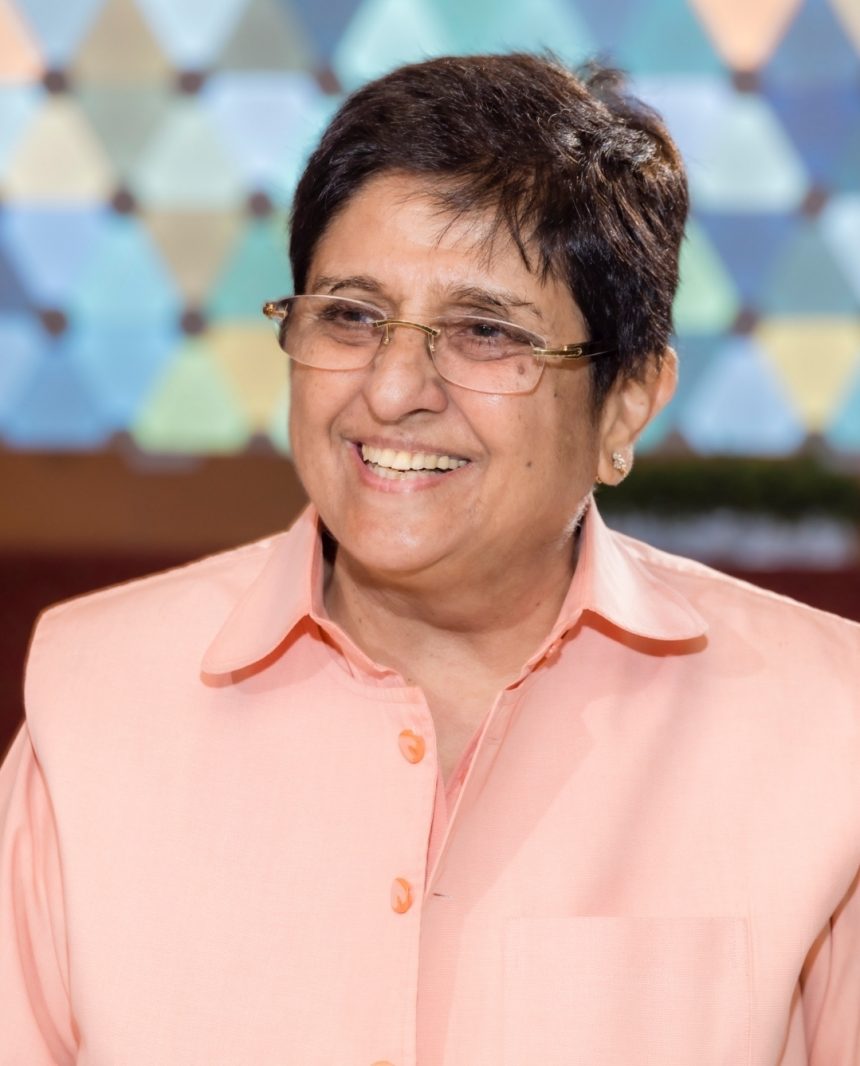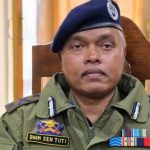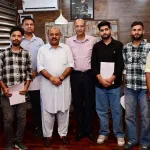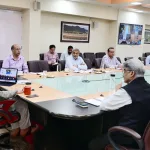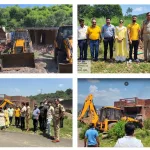Retired IPS officer and former Puducherry Lieutenant Governor Kiran Bedi, in an exclusive interview with Rising Kashmir’s senior reporter Younus Rashid, emphasized that education is the foundation for success. She noted that today’s civil services require compassion, empathy, teamwork, and practical skills. Bedi also urged the youth of Kashmiri to recognise and seize the opportunities available to them.
Excerpts:
RK: You are the first woman to join the Indian Police Service. What was the most defining moment in your career that shaped your outlook on leadership and service?
Kiran: I don’t believe in one defining moment. I treat every opportunity as a defining moment—that’s just my nature. I move from one opportunity, one occasion, one joyful moment to another. For example, just yesterday I was in Srinagar, and I felt a sense of peace among the people.
There was a feeling of harmony. People were aspirational, they were keen to listen, eager to grow. As I drove with Mariam from the airport to Tagore Hall, I asked questions: How are you feeling? How are you doing? How are your parents? I was sensing their sense of security—and I found a heightened sense of relief and safety.
So for me, each of these moments is defining. I don’t dwell on the past. What matters is how I felt today and how I used the opportunities of the present. Life is constantly changing—days change, people change, challenges change, even the weather changes. So it’s about making the most of what’s in front of you.
RK: You’ve been vocal about discipline and self-reliance in public life. How can young people in Kashmir channelise these values in today’s challenging socio-political climate?
Kiran: They need to understand that the future lies in their hands. They must focus on the present and build from it, rather than dwelling on what could have been.
It’s important to identify and make use of the opportunities available to them. For instance, during my talk with the youth yesterday, some faculty members pointed out the lack of skill development centers in Srinagar, which they felt made students unemployable. I told them about the National Skill Development Corporation (NSDC) in India that offers online training programs and low-cost training materials.
In many cases, such programs might not even charge anything in places like Srinagar. People here are relatively better off compared to other parts of India. So it’s not about lacking opportunities—it’s about awareness and willingness to utilize them.
I have already used NSDC for my prison work through India Vision Foundation. We even provide these services in prisons, free of cost. So yes, opportunities exist. One just needs to be aware of them and make the effort to use them.
RK: How has your experience been so far during Kashmir visit, and what impressions are you taking back with you?
Kiran: I think Kashmir is now ready to become a premier tourist destination. But for that, the hospitality infrastructure needs to improve—better roads, hospitality training, and overall service delivery. Tourism can be a huge source of employment here because Kashmir is naturally gifted—it’s the most beautiful part of India.
With the direct train now coming to Srinagar, this will give tourism a significant boost. But we also need to prepare—traffic management, parking facilities, accommodation. Even promoting “Bed & Breakfast” schemes can help provide affordable stays for tourists.
It’s also important to guide people on how to invest the money they earn through tourism—on education, skill development, and personal growth. Kashmir is a spiritual and scenic treasure—divine and beautiful. With peace and preparation, it can thrive.
RK: You interacted with students during the ‘Role Models’ event. What message did you aim to convey, and how do you see the role of such platforms in shaping future leaders?
Kiran: The IIMUN event is one of many meaningful platforms bringing youth together for motivation, inspiration, and learning.
They invited role models they could relate to, like the District Collector of Kulgam they brought yesterday to interact with children and people who inspire them. These kinds of interactions help students understand the journeys behind the success stories.
Such forums must and will continue. They are already planning to expand these initiatives to more cities. Youth groups like IIMUN can play a crucial role in shaping future leaders.
RK: From policing to politics to social reform, your journey has been multifaceted. What’s your advice to young women in Kashmir aspiring to break barriers in male-dominated fields?
Kiran: Education is already helping them break barriers. At the event, the majority of attendees were girls—which itself is a breakthrough.
Their increasing mobility is empowering. They are being educated, inspired, and skilled—and this will transform the entire ecosystem of Kashmir. Peace, harmony, and collaboration are already being valued.
This transformation is accelerating, and I see women as key beneficiaries. The digital and media revolutions also play a part. I told the students: use social media not just for entertainment, but also as a library and a research tool. Choose wisely and explore meaningfully.
RK: Is there a message you’d like to share with those who look up to you as an inspiration, especially aspiring to join the civil services?
Kiran: Education is the foundation, but civil services today require more than academic brilliance. They demand well-rounded individuals—compassionate, empathetic, team-spirited, and skilled.
You need integrity and character because you are there to serve people. Before entering the civil services, one must reflect on their purpose.
Yes, it’s a job—but more than that, it’s a lifelong opportunity to serve humanity and the nation. My own purpose—to serve—has remained constant across every posting, whether I was handling traffic, crime prevention, or working with prisoners and students.
RK: Before we conclude, is there anything else you’d like to share with our readers, especially the young students and aspiring changemakers in Kashmir?
Kiran: Each of them must now become an ambassador of peace, harmony, development, collaboration, and growth.
They should take responsibility for promoting these values. If they do so, they will never be misled—they will lead. This is their land and their future, and they have to be the ones to shape it.


